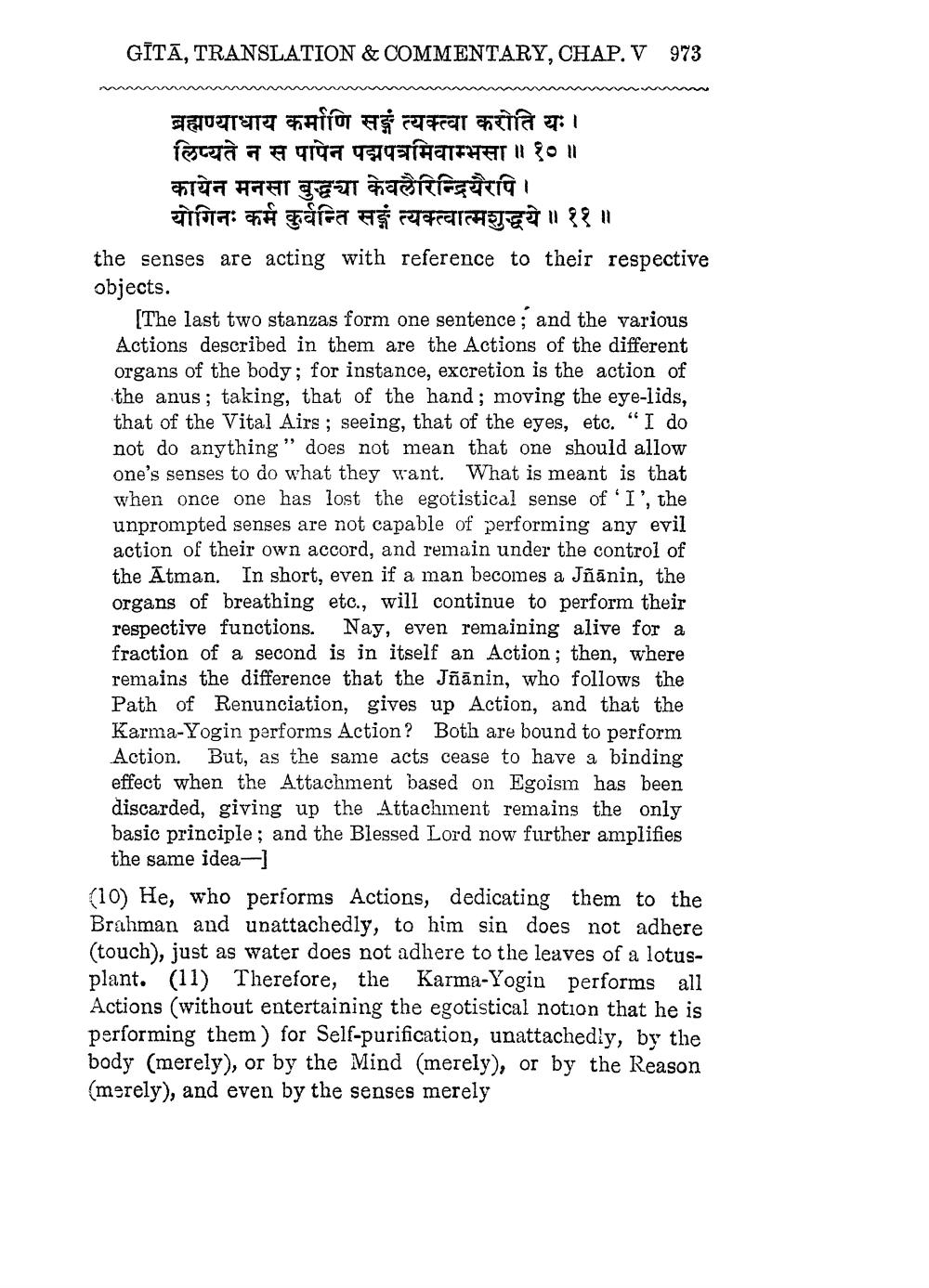________________
GĪTĀ, TRANSLATION & COMMENTARY, CHAP. V 973
ब्रह्मण्याधाय कर्माणि सङ्गं त्यक्त्वा करोति यः । लिप्यते न स पापेन पद्मपत्रमिवाम्भसा ॥ १० ॥ कायेन मनसा बुद्ध्या केवलैरिन्द्रियैरपि । योगिनः कर्म कुर्वन्ति सङ्गं त्यक्त्वात्मशुद्धये ॥ ११ ॥
the senses are acting with reference to their respective objects.
[The last two stanzas form one sentence; and the various Actions described in them are the Actions of the different organs of the body; for instance, excretion is the action of the anus; taking, that of the hand; moving the eye-lids, that of the Vital Airs; seeing, that of the eyes, etc. "I do not do anything "does not mean that one should allow one's senses to do what they want. What is meant is that when once one has lost the egotistical sense of 'I', the unprompted senses are not capable of performing any evil action of their own accord, and remain under the control of the Atman. In short, even if a man becomes a Jñanin, the organs of breathing etc., will continue to perform their respective functions. Nay, even remaining alive for a fraction of a second is in itself an Action; then, where remains the difference that the Jñanin, who follows the Path of Renunciation, gives up Action, and that the Karma-Yogin performs Action? Both are bound to perform Action. But, as the same acts cease to have a binding effect when the Attachment based on Egoism has been discarded, giving up the Attachment remains the only basic principle; and the Blessed Lord now further amplifies the same idea-]
(10) He, who performs Actions, dedicating them to the Brahman and unattachedly, to him sin does not adhere (touch), just as water does not adhere to the leaves of a lotusplant. (11) Therefore, the Karma-Yogin performs all Actions (without entertaining the egotistical notion that he is performing them) for Self-purification, unattachedly, by the body (merely), or by the Mind (merely), or by the Reason (merely), and even by the senses merely




